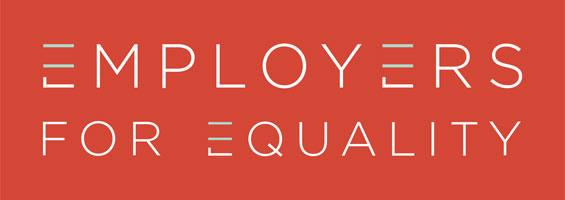Globale Lieferketten neu denken | 🇬🇧 Rethinking Global Supply Chains
Dekolonial, solidarisch, ethisch | 🇬🇧 Decolonial, Solidary, Ethical


Referentinnen: Lisa Jaspers | Co-Initiatorin, Unlearn Business Lab & Jocelina Ndimbalan | Trainerin für Rassismuskritik
Datum: 06.11.2025
Zeit: 10:00 – 11:30
Sprache: Deutsch & English Translation 🇬🇧
Ort: Online
Zielgruppe: Diese Keynote richtet sich an Menschen, die sich bereits mit Rassismuskritik und Kolonialismus auseinandergesetzt haben und nun die globalen ökonomischen Verflechtungen, Machtverhältnisse und Dekolonialisierungsansätze in Wirtschaft und Handel vertiefen möchten
Level: intermediate (für Personen mit Vorkenntnissen z.B. aus einer unserer Veranstaltungen, ohne systematisches Wissen zum Thema)
Inhalt:
Die Keynote beleuchtet, wie globale Lieferketten historisch gewachsene Machtverhältnisse und koloniale Ausbeutungsstrukturen fortschreiben. Sie zeigt auf, dass wirtschaftlicher Wohlstand im globalen Norden oft auf ungleichen Handelsbeziehungen, Arbeitsausbeutung und ökologischer Zerstörung im globalen Süden basiert. Im Zentrum steht die Frage, wie diese Strukturen sichtbar gemacht und nachhaltig verändert werden können. Dabei wird auch kritisch hinterfragt, ob globale Lieferketten überhaupt auf Augenhöhe gestaltet werden können – oder ob nicht das Konzept des internationalen Handels selbst neu gedacht werden muss.
Die Keynote versteht Dekolonialisierung nicht als technokratische Anpassung, sondern als tiefgreifende Auseinandersetzung mit Besitzverhältnissen, Macht und Verantwortung. Abschließend wird deutlich: Dekolonialisierung ist nicht nur eine ethische, sondern auch eine strukturelle und wirtschaftliche Notwendigkeit, um globale Krisen solidarisch zu bewältigen.
Am Ende der Veranstaltung werden die Teilnehmenden
- erkannt haben, dass globale Lieferketten keine neutralen Strukturen sind, sondern auf historischen Macht- und Ausbeutungsverhältnissen beruhen, die bis in die Gegenwart wirken.
- verstanden haben, warum eine Dekolonialisierung der Wirtschaftsbeziehungen über technische Anpassungen hinausgehen und Besitz- und Machtfragen grundlegend in den Blick nehmen muss.
Über das Format:
Die Teilnehmer*innen erhalten in unseren Insights einen fundierten Überblick über das Thema und werden für die Herausforderungen mit Hilfe von Praxisbeispielen sensibilisiert. Alle unsere Insights sind interaktiv – kleine Übungen oder ein kurzer Austausch mit anderen Teilnehmenden sind häufig Bestandteil. In einer Q&A Session werden die vorgestellten Inhalte reflektiert und Fragen beantwortet.
Über Lisa Jaspers (sie/ihr) & Jocelina Ndimbalan (sie/ihr):
Lisa Jaspers ist Gründerin des Fair Fashion Labels FOLKDAYS und Co-Initiatorin des Unlearn Business Lab. Sie hat außerdem die Initiative #fairbylaw gestartet, die sich für ein deutsches Lieferkettengesetz stark gemacht hat. Sie ist gemeinsam mit Naomi Ryland Co-Autorin des Buchs „Starting a Revolution – was wir von Unternehmerinnen über die Zukunft der Arbeitswelt lernen können“ und Mitherausgeberin des Buchs „Unlearn Patriarchy“. In diesem Buch hat sie das Kapitel „Unlearn Kapitalismus“ geschrieben. Sie lebt mit ihrem Mann und zwei Kindern in Berlin.
Jocelina Ndimbalan kommt aus den Sozial- und Kulturwissenschaften und arbeitet als Trainerin mit Unternehmen, Organisationen & Sozial- und Bildungseinrichtungen zu den Themen Rassismuskritik, Intersektionalität und Klassismus sowie globalen & (neo-)kolonialen Verflechtungen. Drei Jahre lang war sie Assistentin und Trainerin bei Tupoka Ogette, einer führenden Vermittlerin für Rassismuskritik in Deutschland. Heute arbeitet Jocelina Ndimbalan mit The Changer – tbd* und Unlearn Business Lab, um Social Impact und Wirtschaft nachhaltig und gerecht zu gestalten. Durch ihre Arbeit möchte sie Menschen zum Perspektivwechsel anregen und zur aktiven Auseinandersetzung mit Diskriminierung und sozialer Ungleichheit ermutigen, so dass wir gemeinsam eine gerechtere und diskriminierungsärmere Gesellschaft gestalten können.
🇬🇧 Content:
This keynote explores how global supply chains continue historically rooted power structures and colonial patterns of exploitation. It highlights that economic prosperity in the Global North is often based on unequal trade relations, labor exploitation, and environmental destruction in the Global South. At the core is the question of how these structures can be made visible and changed in a sustainable way. The keynote also critically questions whether global supply chains can truly be structured on equal footing – or whether the concept of international trade itself must be reimagined.
The keynote does not understand decolonization as a technocratic adjustment, but as a profound engagement with ownership, power, and responsibility. In conclusion, it becomes clear: decolonization is not only an ethical, but also a structural and economic necessity in order to address global crises in solidarity.
By the end of the event, participants will have:
-
recognized that global supply chains are not neutral structures, but are based on historical power and exploitation relations that still shape the present.
-
understood why decolonizing economic relations must go beyond technical adjustments and fundamentally address questions of ownership and power.
About the Format:
Participants receive a well-founded overview of the topic in our Insights and are sensitized to the challenges using practical examples. All our Insights are interactive – small exercises or short exchanges with other participants are often included. In a Q&A session, the presented content is reflected upon and questions are answered.
About Lisa Jaspers (she/her) & Jocelina Ndimbalan (she/her):
Lisa Jaspers is the founder of the fair fashion label FOLKDAYS and co-initiator of the Unlearn Business Lab. She also launched the initiative #fairbylaw, which advocated for a German supply chain law. Together with Naomi Ryland, she co-authored the book “Starting a Revolution – what we can learn from female entrepreneurs about the future of work” and co-edited “Unlearn Patriarchy”, where she wrote the chapter “Unlearn Capitalism”. She lives in Berlin with her husband and two children.
Jocelina Ndimbalan comes from the social and cultural sciences and works as a trainer with companies, organizations, and social and educational institutions on the topics of anti-racism, intersectionality, classism, and global & (neo-)colonial entanglements. For three years, she was an assistant and trainer to Tupoka Ogette, one of Germany’s leading educators in anti-racism. Today, Jocelina works with The Changer – tbd* and the Unlearn Business Lab to shape social impact and business in a sustainable and just way. Through her work, she aims to inspire shifts in perspective and encourage active engagement with discrimination and social inequality – so that together we can shape a more just and discrimination-free society.
Photo credits: Lena Scherer
You can register via the button below.

